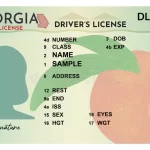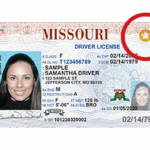Navigating the World of Rebuilt Title Cars: Finding Deals and Avoiding Disasters

The lure of a significantly discounted price tag can make rebuilt title cars incredibly attractive. Imagine driving the car of your dreams, or a reliable, practical vehicle, for a fraction of the cost of a clean title equivalent. But the term “rebuilt title” also conjures images of mechanical nightmares, hidden damage, and potential financial pitfalls. So, how do you navigate this potentially lucrative, yet undeniably risky, market and find “rebuilt title cars near me” that are worth considering?
This comprehensive guide will delve into the world of rebuilt title cars, covering everything from understanding what a rebuilt title means to the potential pros and cons, to providing practical advice on how to find, inspect, and ultimately decide if a rebuilt title car is the right choice for you.
Understanding Rebuilt Titles: More Than Just a “Used Car”
Before diving into the specifics of locating and evaluating rebuilt title cars, it’s crucial to understand exactly what a rebuilt title signifies. A rebuilt title is issued to a vehicle that was previously deemed a total loss by an insurance company. This usually happens when the cost of repairing the vehicle after an accident, flood, theft, or other significant damage exceeds a certain percentage of its pre-damage value. This percentage varies by state.
The key difference between a salvage title and a rebuilt title lies in the repair process. A salvage title indicates the vehicle sustained substantial damage and was declared a total loss but hasn’t been repaired yet. A rebuilt title, on the other hand, signifies that the vehicle has been repaired, inspected, and certified as roadworthy by the state.
Common Reasons for a Salvage/Rebuilt Title:
- Collision Damage: This is the most frequent cause. Accidents, ranging from minor fender benders to severe impacts, can result in extensive damage requiring costly repairs.
- Flood Damage: Vehicles submerged in floodwaters can suffer significant electrical and mechanical damage, even if the water recedes quickly.
- Hail Damage: Extensive hail damage can render a vehicle a total loss, even if the mechanical components are unaffected.
- Theft Recovery: Stolen vehicles often sustain damage during the theft or recovery process, or may be stripped of parts, leading to a salvage title.
- Vandalism: Severe vandalism can result in a vehicle being declared a total loss.
Why Consider a Rebuilt Title Car? The Potential Upside:
The primary allure of rebuilt title cars is the significant price discount. You can often purchase a rebuilt title vehicle for 30-70% less than the equivalent clean title model. This can be a significant advantage, especially if you’re on a tight budget or looking for a specific model that’s otherwise financially out of reach.
Beyond the lower price, other potential benefits include:
- Opportunity for Customization: Since you’re likely saving money on the purchase price, you might have more budget available for upgrades, modifications, or cosmetic improvements.
- Learning Experience: For mechanically inclined individuals, repairing a rebuilt title car can be a rewarding learning experience.
- Potential for Profit (with caution): With careful repairs and thorough documentation, you might be able to resell the vehicle for a profit, although this is a risky endeavor best undertaken with expertise and a strong understanding of the market.
The Downside: Navigating the Risks of Rebuilt Title Cars
While the potential savings can be tempting, it’s crucial to acknowledge the risks associated with rebuilt title vehicles:
- Hidden Damage: Even with a state inspection, hidden damage or substandard repairs may exist. This could lead to mechanical failures, safety issues, or reduced lifespan of the vehicle.
- Lower Resale Value: Rebuilt title cars always have a lower resale value compared to their clean title counterparts. This can make it difficult to recoup your investment if you decide to sell the vehicle later.
- Financing Difficulties: Many lenders are hesitant to finance rebuilt title cars due to the inherent risks. You may face higher interest rates or be required to make a larger down payment.
- Insurance Challenges: Some insurance companies may refuse to insure rebuilt title cars, or they may offer limited coverage. This can increase your financial risk in the event of another accident.
- Potential for Future Problems: Even if the car initially appears to be in good condition, underlying issues related to the original damage could surface later, leading to costly repairs.
- Safety Concerns: If repairs were not performed correctly, the vehicle’s safety features, such as airbags and structural integrity, may be compromised.
Finding Rebuilt Title Cars Near You: Where to Look
Now that you’re aware of the potential benefits and risks, let’s explore where to find “rebuilt title cars near me”:
- Online Marketplaces:
- Craigslist: A local resource for finding private sellers. Be prepared to do thorough research and inspection.
- Facebook Marketplace: Similar to Craigslist, offering a local platform for buying and selling vehicles.
- eBay Motors: A wider marketplace with more options, but requires careful filtering and due diligence.
- Specialized Rebuilt Title Websites: Websites that specialize in selling rebuilt title vehicles, often with more detailed information and guarantees (though these should be reviewed with skepticism).
- Local Salvage Auctions: Auctions dedicated to selling salvage and rebuilt title vehicles. These auctions can offer competitive prices, but require expertise in vehicle evaluation. Examples include Copart and IAAI.
- Dealerships Specializing in Rebuilt Titles: Some dealerships specialize in buying and selling rebuilt title cars. These dealerships may offer warranties and perform more thorough inspections than private sellers.
- Private Sellers: Individuals who have repaired and rebuilt a salvage vehicle themselves. This option requires extreme caution and a high level of mechanical knowledge.
Due Diligence is Key: Inspecting and Evaluating a Rebuilt Title Car
Finding a potential rebuilt title car is only the first step. Thorough inspection and evaluation are essential to minimizing risk and making an informed decision. Here’s a comprehensive checklist:
1. Research the Vehicle History:
- Obtain a Vehicle History Report (VHR): Services like Carfax or AutoCheck provide valuable information about the vehicle’s past, including accident history, title status, and mileage discrepancies. Pay close attention to the details of the damage that led to the salvage title.
- Verify the Rebuild Inspection: Obtain documentation proving the vehicle passed the state-required inspection for a rebuilt title. This documentation should include the date of inspection, the name of the inspection facility, and the inspector’s credentials.
2. Conduct a Thorough Visual Inspection:
- Check for Bodywork Imperfections: Look for signs of poor bodywork, such as mismatched paint, uneven panel gaps, and ripples in the body panels. Use a magnet to check for excessive use of body filler.
- Inspect the Frame: Examine the frame for signs of damage, such as bends, cracks, or welds. This is best done by a qualified mechanic.
- Examine the Undercarriage: Look for rust, corrosion, and signs of damage to the suspension components, exhaust system, and fuel lines.
- Evaluate the Tires and Wheels: Check the tire tread depth and look for uneven wear patterns, which could indicate alignment issues or suspension problems. Inspect the wheels for damage, such as bends or cracks.
- Interior Inspection: Check for water damage (especially if the car has a flood title), mold, and mildew. Pay attention to the condition of the upholstery, carpeting, and headliner. Test all electronic components, including the radio, air conditioning, power windows, and locks.
3. Conduct a Mechanical Inspection:
- Test Drive: Take the car for a test drive and pay attention to how it handles. Listen for unusual noises and be aware of any vibrations or handling problems.
- Engine Performance: Check the engine for smooth idling, acceleration, and overall performance. Look for leaks, smoke, or unusual smells.
- Transmission Performance: Test the transmission for smooth shifting and proper engagement of all gears.
- Braking System: Test the brakes for smooth and effective stopping power. Listen for noises and check for vibrations.
- Suspension System: Listen for noises and feel for any unusual vibrations while driving.
4. Independent Mechanic Inspection is Essential:
- Take the Vehicle to a Trusted Mechanic: A pre-purchase inspection by a qualified mechanic is crucial. The mechanic can identify hidden damage, assess the quality of the repairs, and provide an estimate of any potential future repairs.
- Provide the Mechanic with the Vehicle History Report: This will help the mechanic focus on areas of potential concern based on the vehicle’s accident history.
- Ask the Mechanic to Focus on Safety: Ensure the mechanic checks the safety features, such as airbags, seatbelts, and anti-lock brakes, to ensure they are functioning properly.
5. Consider a Paint Meter Inspection:
- A paint meter can detect areas where body filler has been used, indicating previous damage and repairs. This is especially useful for identifying areas that may have been poorly repaired.
Negotiating the Price: Leverage Your Knowledge
After conducting a thorough inspection, you’ll have a better understanding of the vehicle’s condition and potential issues. This knowledge is powerful leverage when negotiating the price.
- Highlight Any Issues Found: Point out any flaws or potential problems identified during the inspection.
- Get Repair Estimates: Obtain estimates for any necessary repairs and use these estimates to justify a lower price.
- Research Comparable Sales: Compare the price of the rebuilt title car to other similar vehicles with rebuilt titles in your area.
- Be Prepared to Walk Away: If the seller is unwilling to negotiate or address your concerns, be prepared to walk away. There are other rebuilt title cars available.
Insurance and Financing: Considerations Before You Buy
Before making a final decision, research insurance and financing options.
- Contact Your Insurance Company: Inquire about coverage options and rates for rebuilt title cars. Some companies may refuse to insure them, while others may offer limited coverage.
- Explore Financing Options: Contact lenders to determine if they offer financing for rebuilt title cars. Be prepared for higher interest rates and stricter loan terms.
- Consider Paying Cash: If possible, consider paying cash for the vehicle. This will avoid the challenges and costs associated with financing.
Is a Rebuilt Title Car Right for You? A Checklist for Self-Assessment
Ultimately, the decision of whether or not to purchase a rebuilt title car depends on your circumstances, risk tolerance, and mechanical aptitude. Ask yourself these questions:
- What is your budget? Are you willing to accept the risks associated with a rebuilt title car in exchange for a lower price?
- What are your mechanical skills? Are you comfortable performing basic repairs and maintenance yourself?
- What is your risk tolerance? Are you prepared to deal with potential problems that may arise in the future?
- What are your transportation needs? Will the vehicle be used for commuting, family transportation, or recreational purposes?
- How long do you plan to keep the car? Are you looking for a short-term solution or a long-term investment?
Conclusion: Making an Informed Decision
Buying a rebuilt title car can be a rewarding experience if you approach it with caution, conduct thorough research, and perform a comprehensive inspection. While the potential savings can be significant, it’s crucial to be aware of the risks involved and to make an informed decision based on your circumstances. By following the guidelines outlined in this guide, you can increase your chances of finding a reliable and affordable rebuilt title car near you that meets your needs and budget. Remember, knowledge is power, and thorough due diligence is your best defense against potential pitfalls in the world of rebuilt title vehicles. Good luck with your search!















